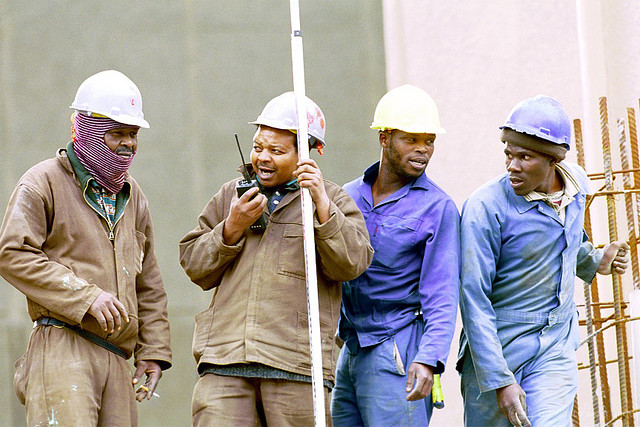AU Ambassador to the United States, Amina Ali of Tanzania, presented the list of top priorities at a conference on 11 January held at Washington think-tank, the Brookings Institution.
Among them were the regulars - peace and security, enhanced democracy and good governance – as well as improved regional trade and greater involvement of the continent’s large diaspora in African affairs.
The first priority for Africa was the AU's resolve to review its international partnerships to ensure they bring greater benefits to Africa.
“We are working to be able to build closer partnerships with our international partners so that Africa can really attain a sustainable economy,” Ali told the conference.
The AU wants Africa to manufacture and export finished products to its trading partners rather than just selling them the raw materials as it does now. She cited China, India, the EU and US and other rising stars in trade with the continent, including Turkey and Latin America, and said the AU had held talks on the new breed of partnerships with some of them.
The AU also wants Africa to have a veto-wielding seat on the UN Security Council, and a place at the G20 negotiating table, Ali said.
The peace and security that have eluded Africa for decades continue to be high on the list of problems that the continent needs to resolve, but she spoke only of conflict in Sudan. “The AU will continue to look into issues for Sudan,” Ali said.
A report released at the conference, Foresight Africa, highlighted other tinderboxes and called for “urgent instability and warfare policy reviews” to meet the challenges the continent faces in not only Sudan but also in Somalia and Nigeria.
The report compares the instability in Africa to the decade-old US-led war in Afghanistan, and warned that if “the current trend continues”, a swathe of Africa, stretching from the Horn to Nigeria, “is likely to experience increasing instability and warfare, while narratives of jihadist revolt and terrorist technologies circulate among its citizens”.
| AU wish-list for 2012 | |
| Revamped international partnerships to bring more benefits to Africa | |
| Peace and security | |
| Good governance and a better democratic process | |
| Fewer internal trade barriers leading to an Africa-wide free trade zone | |
| Greater involvement in African affairs for the diaspora | |
| Improved food security | |
The AU also pledged to "review the mechanism for democratic process in Africa" after the wake-up call from the uprisings in the Arab world, including North Africa, a year ago, Ali said.
The AU will press member states to sign a charter ratified by the AU assembly in 2007, which aims to strengthen democracy and good governance in Africa, she said.
The charter was inspired in part by concern that “unconstitutional changes of governments” are a key cause of insecurity and “violent conflict” in Africa, and by a determination to “strengthen good governance through the institutionalization of transparency, accountability and participatory democracy”.
As of November last year, 38 of the AU’s 54 member states had signed the charter, but only 10 had ratified it. It is notable that nearly all the countries in the areas of Africa that are “likely to experience increasing instability and warfare” have signed the charter, with the exception of Somalia and Eritrea in the east and Cameroon in the west.
Food security
The AU will take steps to establish “food reserves” that give areas that face drought a “cushion” against famine, said Ali. She also voiced fears that parts of west Africa could be hit by drought this year, highlighting the need to rapidly establish food reserves – a tough challenge in a time of high food prices and an economic crisis in Europe, which has hit Africa.
Africa also has to “secure access to markets and competitive prices for farmers” or “risk inciting unrest” and food riots, the Foresight Africa report says.
AU officials will push in 2012 to establish a free trade zone that spans the length and breadth of the continent, Ali said. It would boost commerce between countries, a key step towards development.
At present, less than 15 percent of African trade stays on the continent - the rest is sold abroad.
The last item on the AU wish-list is greater involvement of the African diaspora, said to outnumber Africans at home, in the continent’s affairs.
The AU is due to host an African diaspora summit in May, Ali said.
Ali stressed the importance of the diaspora to the continent: remittances represent a larger revenue source for Africa than overseas development aid.
kdz/oa/mw
This article was produced by IRIN News while it was part of the United Nations Office for the Coordination of Humanitarian Affairs. Please send queries on copyright or liability to the UN. For more information: https://shop.un.org/rights-permissions





